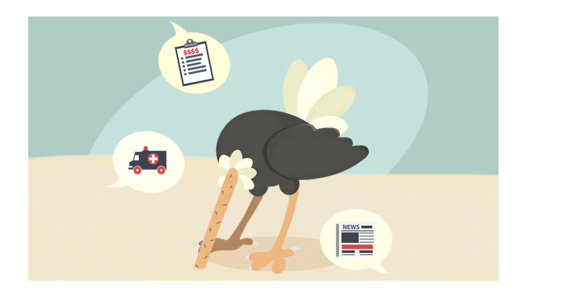Your podcast discovery platform
Curious minds select the most fascinating podcasts from around the world. Discover hand-piqd audio recommendations on your favorite topics.

piqer for: Health and Sanity Global finds
I was born in 1987 in Bucharest. I studied Psychology and Educational Sciences at the University of Bucharest. For two years I worked in a psychotherapy practice, dealing with gambling addicts. I'm an independent reporter, writing and doing video reportages mostly about social and political issues. I am currently based in Jena.
The Ostrich Effect
In this episode of Hidden Brain, the talk focuses on information aversion, a concept that is also known as “the ostrich effect”. Although the rule in economy is that "a person should never avoid information, because information can never hurt a decision", in real life, people are less rational.
“We avoid getting an important medical test done, fearing bad results. We turn off the news when the headlines make us upset, even though the information is pertinent to us.”
A few studies are discussed that show how people deal with information surplus and the information that can induce anxiety or depression. The conclusion of the researchers is that people are hungry for information, and are even willing to pay to find it out quickly, but only when it’s pleasant. If the news is bad, we generally want to shut it out.
Another important point that the episode makes, and that should taken into consideration — at least in the educational field — is that if you want to make someone do something once, frightening them into doing it can work. But if you want them to continue doing something on a regular basis, fear is ineffective and counterproductive.
